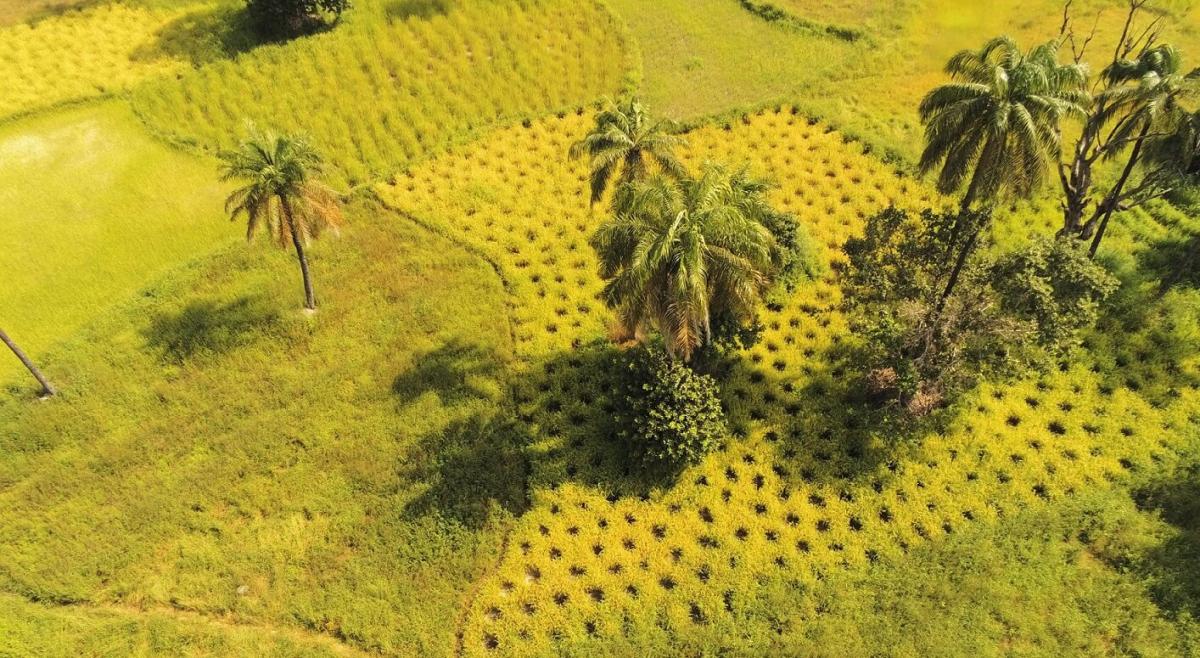- Home
- Worldwide
- CIRAD worldwide
- Projects
- FAIR Sahel project
Promoting agroecological intensification of agriculture to boost the resilience of farms in the Sahel - FAIR Sahel

Rice fields around Kolda (Senegal) © S. Taugourdeau, CIRAD
Issues
Farming systems in the Sahel are highly vulnerable to various risks (climate, economic, and health- and security-related), reduced diversification of agricultural production activities, and agricultural value chains that do not favour their profitability. As a result of population pressure, there is competition between various types of agricultural and pastoral land use. This has led to over-use and rapid degradation of natural resources (soils, water and biodiversity) and the abandonment of certain irrigation schemes. Farmers' incomes are still excessively limited by low productivity and a low return on labour. Farmers cruelly lack access to the knowledge required to find alternative, more sustainable production methods, and to organize themselves so as to share, resources, support each other and negotiate more effectively.
Description
Agroecological intensification (AEI) could help producers in the Sahel to develop farming systems that are more resilient to climate change and boost their food security.
The innovations developed by the project will serve to boost the performance of agricultural production systems, with a positive impact on producers' living conditions and on rural environments as a whole. FAIR makes use of the knowledge and experience of the producers themselves, and methodological, scientific and technical contributions from research and development players. The project's originality lies in the fact that it is working to question and strengthen the interactions and collective processes at play between stakeholders in West Africa and Europe, to accelerate and foster the ongoing emergence of agroecological innovations and their adoption in rural areas.
Expected impacts
- The ways in which research interacts with development players and producers will have been adapted, to integrate agroecological knowledge of farming system functioning more effectively.
- Advocacy, with scientific and social arguments provided by the project partners, will be used to analyse the merits of AEI for ensuring food security and agricultural development.
- Agroecological systems will be more easily adopted by farmers and extended to other regions.
- Producers will be better able to adjust their production systems in a context of economic, social, political and climate change.
- Producers will be more resilient to climate change thanks to better resource management and combinations of cropping and livestock production systems more suited to the new climate context.
Contract partners
Institut d'Economie Rurale (Mali); Institut de l'Environnement et Recherches Agricoles (Burkina Faso); Institut Sénégalais de Recherches Agricoles and ENDA Pronat (Senegal); Institut de Recherche pour le Développement and Agronomes et Vétérinaires Sans Frontières (France); Wageningen University & Research (Netherlands); Consejo Superior de Investigaciones Cientificas (Spain); Leibniz Centre for Agricultural Landscape Research (Germany)
























